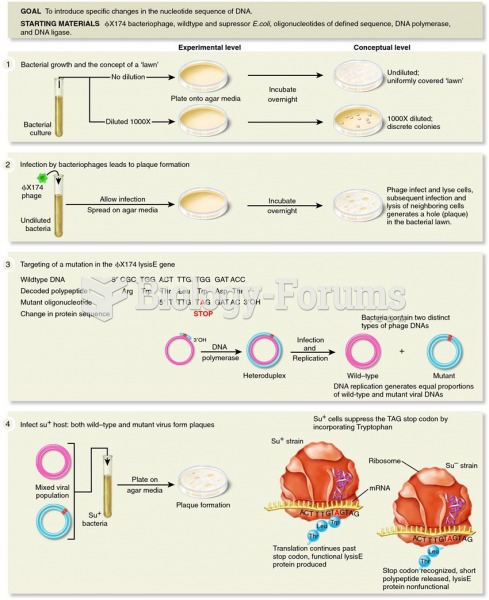|
|
|
People with high total cholesterol have about two times the risk for heart disease as people with ideal levels.
Although not all of the following muscle groups are commonly used, intramuscular injections may be given into the abdominals, biceps, calves, deltoids, gluteals, laterals, pectorals, quadriceps, trapezoids, and triceps.
The first documented use of surgical anesthesia in the United States was in Connecticut in 1844.
Looking at the sun may not only cause headache and distort your vision temporarily, but it can also cause permanent eye damage. Any exposure to sunlight adds to the cumulative effects of ultraviolet (UV) radiation on your eyes. UV exposure has been linked to eye disorders such as macular degeneration, solar retinitis, and corneal dystrophies.
Illicit drug use costs the United States approximately $181 billion every year.
 Photo of the neck of a patient with non-Hodgkin’s lymphoma showing the swelling associated with enla
Photo of the neck of a patient with non-Hodgkin’s lymphoma showing the swelling associated with enla
 Grace Service, a YMCA missionary, explained that these porters worked at the base of Mount Omei in S
Grace Service, a YMCA missionary, explained that these porters worked at the base of Mount Omei in S





